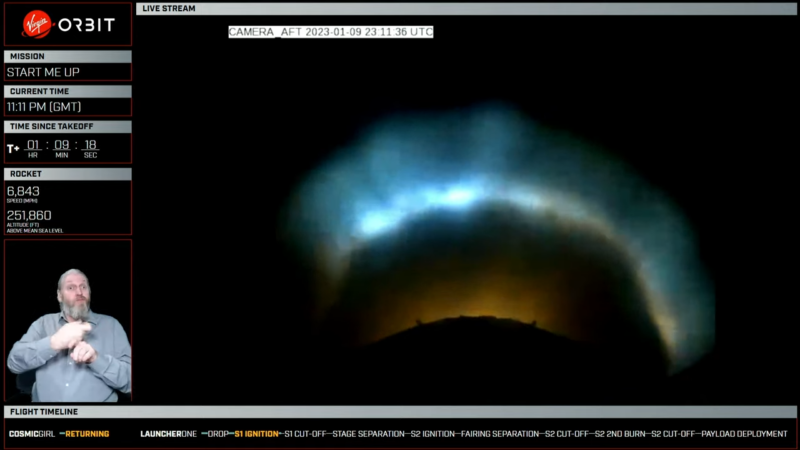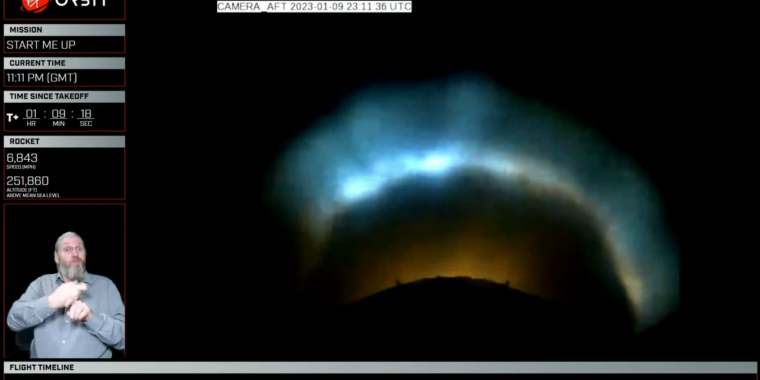
Virgin Orbit
Everything went well during the initial phases of a historic launch attempt by Virgin Orbit on Monday night as the rocket started its journey to space over the Atlantic Ocean, southwest of Ireland.
Shortly after the LauncherOne rocket was dropped from the Cosmic Girl aircraft, its NewtonThree main engine lighted smartly and the first stage climbed toward orbit. The first stage engine’s shutdown appeared to be nominal, with the second stage igniting to complete the 8.5-minute burn to low-Earth orbit.
Unfortunately, after this point, the information from Virgin Orbit’s webcast and its Twitter feed became confusing. Although the webcast telemetry data suggested that the rocket’s altitude started dropping, the host said nothing about this, and instead explained that telemetry data from the rocket could be erratic. And a few minutes later, Virgin Orbit tweeted that its rocket and nine payloads had successfully reached orbit.
Only, they had not. Thirty-five minutes after the rocket’s ignition, and long after it should have reached orbit, the company tweeted that a problem had occurred. “We appear to have an anomaly that has prevented us from reaching orbit. We are evaluating the information,” the company said via Twitter. The earlier tweet, claiming mission success, was deleted.
Although the webcast proceeded for about half an hour longer, Virgin Orbit provided no more information about the anomaly that caused the upper stage and its payloads to fail to reach orbit.
This will likely be a devastating launch failure for Virgin Orbit, a US-based small launch company trying to find its niche in the launch market. Prior to Monday’s launch, the company reached orbit on four of its first five attempts, a good record for a startup rocket company. But it was struggling to reach a high cadence of missions, a prerequisite to breaking even financially by cashing launch contract checks.
Monday’s attempt from the United Kingdom—a historic first orbital launch attempt from that nation—was a high-profile opportunity to show investors what the company was capable of, and to impress British officials who were on hand to see the rocket-carrying airplane take off from a spaceport in southwestern England.
UK officials had worked for eight years to bring a horizontal launch capability to Spaceport Cornwall, which is situated on the site of Newquay Airport, a former Royal Air Force station. During that time, officials from the spaceport, the UK Space Agency, and Virgin Orbit have worked to address regulatory concerns about handling the rocket in Cornwall, and launching it over international waters to the southwest of Ireland.
Now the first orbital launch attempt from the UK has ended in failure. British officials, who might have to be convinced to help keep the company financially stable, were likely unimpressed. So were the rocket’s customers, which included the governments of the United States and United Kingdom. For Virgin Orbit, its first launch attempt from the UK was a load of tosh.








